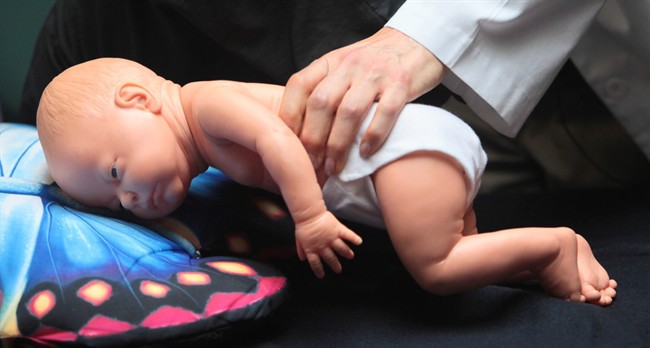A BC Coroners Service death panel review into sudden infant sleep deaths has found that babies continue to die under many of the same circumstances as a similar review five years ago.

The panel also determined that the deaths were disproportionately among young families with risk factors such as exposure to tobacco, or other vulnerabilities, and that sleep position combined with health issues may have increased mortality risk among some infants.
“Something that stood out for us is that there are many parallels to the findings from our death review panel into these deaths five years ago,” said panel chair Michael Eglison in a statement.

Get breaking National news
“That means there is still work to do around sharing messaging about safe sleep practices and associated risk with the right audience; and, there is work to do to better support new parents with identified vulnerabilities.”

The panel, which reviewed 141 sleep-related infant deaths between 2013 and 2018, found about 23 infants under the age of one die unexpectedly during sleep in the province every year.
- B.C. needs new mental health hospital, psychiatrist tells inquest into family’s death
- Nanaimo break-in suspect struggled with sobriety, says former employer
- Criticism over B.C. government’s handling of Texada grizzly bear shooting
- Full week-long closure of Pattullo Bridge and stal̕əw̓asəm Bridge starts Friday
It has made recommendations in three areas to reduce the risk of such deaths.
Those include better support from trained providers, such as public health nurses, for expectant women and families with infants.
The panel also recommends consistent and accessible messaging related to infant sleep practices, and boosting provincial tools to review and investigate infant deaths.
In addition to the recommendations, the panel also highlighted two gaps in service provision: insufficient capacity to deliver universal public health services, and the inability to provide enhanced services in all situations involving vulnerable people.
The review, titled “Sleeping Safely,” follows a 2014 review that examined infant deaths between 2008 and 2012.








Comments